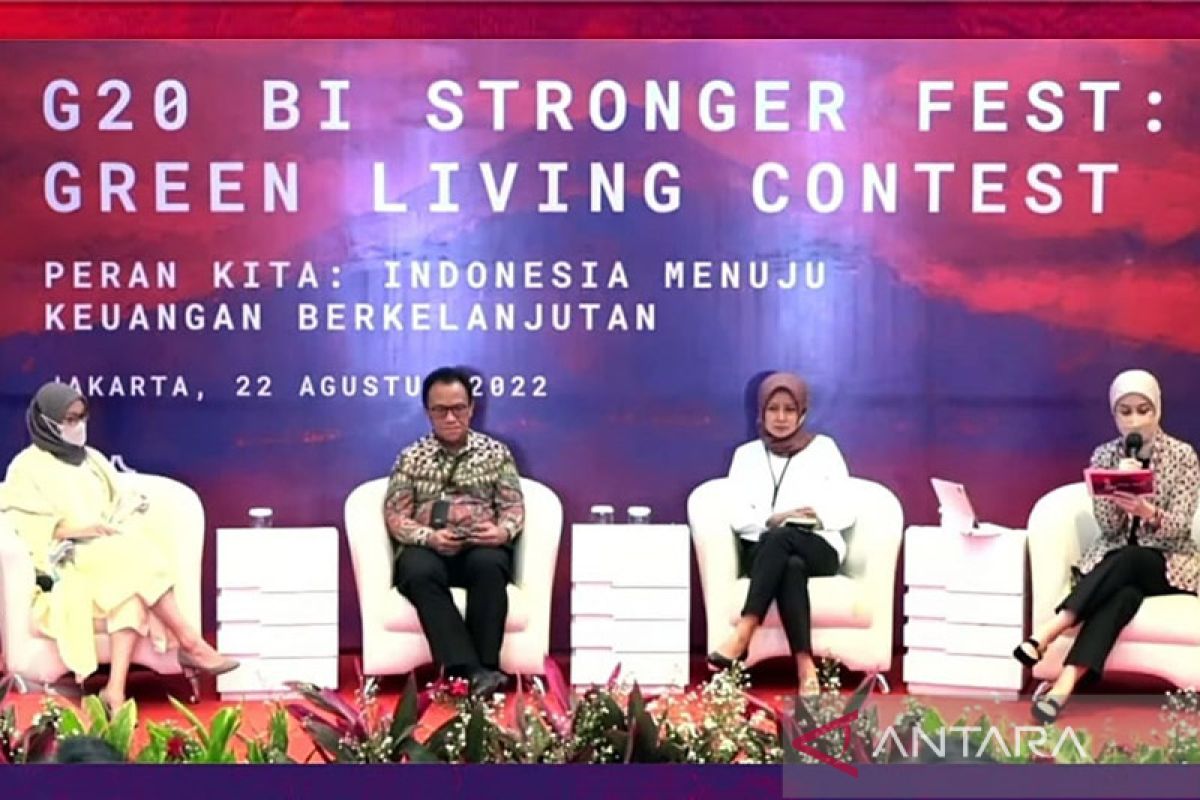Jakarta (ANTARA) - Indonesia as a country with diverse islands is prone to disasters caused by climate change, the Presidency Chair of the Sustainable Finance Working Group (SFWG) of the Finance Ministry Dian Lestari said.
Even, she noted, it can be considered a supermarket of climate change-caused disasters, as nearly 60 percent of its population lives in coastal areas,
“The tidal flooding was caused by rising sea levels, various hydrometeorological disasters, and other disasters. Indonesia can be considered a supermarket of climate change-caused disasters," Lestari stated at the G20 BI Stronger Fest titled "Indonesia Towards Sustainable Finance" conducted in a hybrid format here on Monday.
She stated that the impact of climate change-triggered disasters could be greater than the current COVID-19 pandemic. According to Lestari, Indonesia was ranked among the top 12 countries most vulnerable to climate change.
Lestari estimated that disruption to Indonesia's development could reach between three and five percent due to climate change-triggered disasters in 2030.
She highlighted that the government's efforts to achieve the 2030 low carbon economic development target and 2060 net-zero emissions should be supported by everyone through ways, such as investment from the private sector to support various fundings on existing energy transition.
Related news: Climate change losses could touch Rp544 trillion in 2020--2024: gov't
To achieve low-carbon economic development in 2030 alone, Indonesia requires around Rp3,400 trillion, she pointed out.
"To be able to control climate change to achieve the target is not cheap. The investment is very expensive," Lestari remarked.
On the same occasion, Program Lead of WWF Indonesia Sustainable Finance Rizkiasari Yudawinata said that Indonesia could ensure production efficiency by being heedful of the natural, climatic, and social aspects as a means to minimize the impacts of climate change.
Currently, there was an imbalance in terms of supply and demand for natural resources, Yudawinata pointed out.
"In terms of achieving prosperity, we tend to use wasteful methods," she stated.
Should Indonesia forgo changes in terms of production that took nature into account, it would lead to worsening of the situation and rising greenhouse gases, thereby resulting in even more damaging climate change.
Moreover, climate change ultimately affects natural conditions, which would in turn impact human survival from an economic, social, and environmental perspective.
According to data from the Meteorological, Climatology, and Geophysics agency, the average air temperature in June 2022 was recorded at 26.73 degrees Celsius, or shows a negative anomaly of -0.06 degrees Celsius. The anomaly was the 22nd-highest anomaly value throughout the observation data period since 1981.
Read also: Indonesia's rice self-sufficiency a major step to create food security: IRRI
Read also: Bulog to export corn










